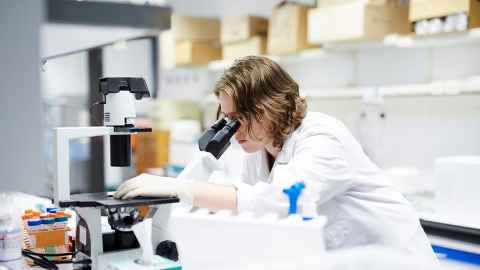Determinants of a healthy life overview

A genome is an organism's complete set of DNA, including all of its genes. Understanding how the genome works is key to understanding why some people develop certain conditions and others don’t.
During early life, both in the womb and in the early years of postnatal development, the environment interacts with the genome to determine life-long disease risk. Understanding how the environment alters gene expression, for example through epigenetic modifications to the genome, could help us design interventions to decrease the risk of disease in later life.
In addition to our own genome, there are trillions of bacteria living in our bodies that are changing all the time. Some of these bacteria live in our cells and have the potential to change how our cells behave. This means it could be possible to use bacterial supplements to alter the likelihood of developing diseases like diabetes.
This groundbreaking area of science is a key research theme at Liggins because of its potential to understand why and how non-communicable diseases develop.